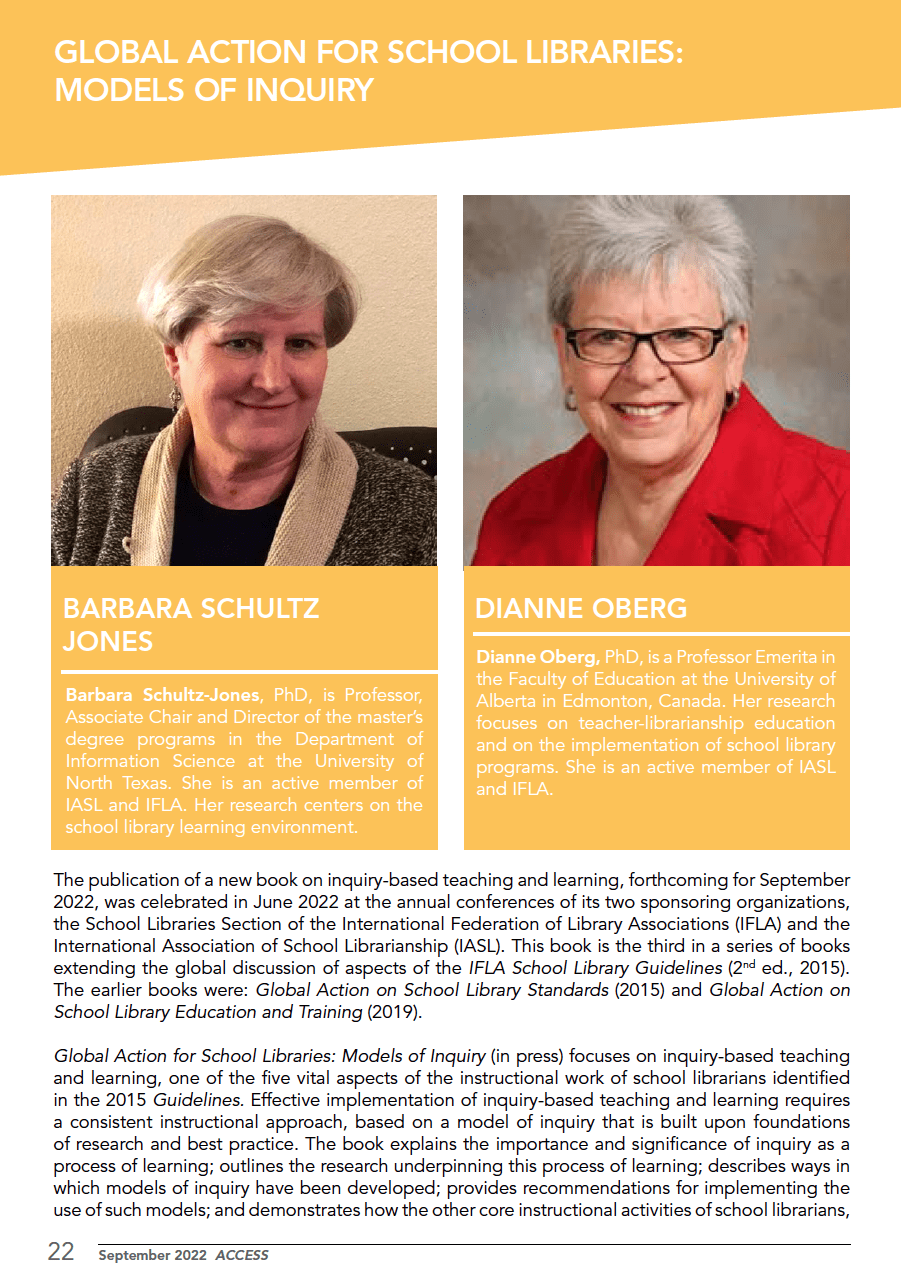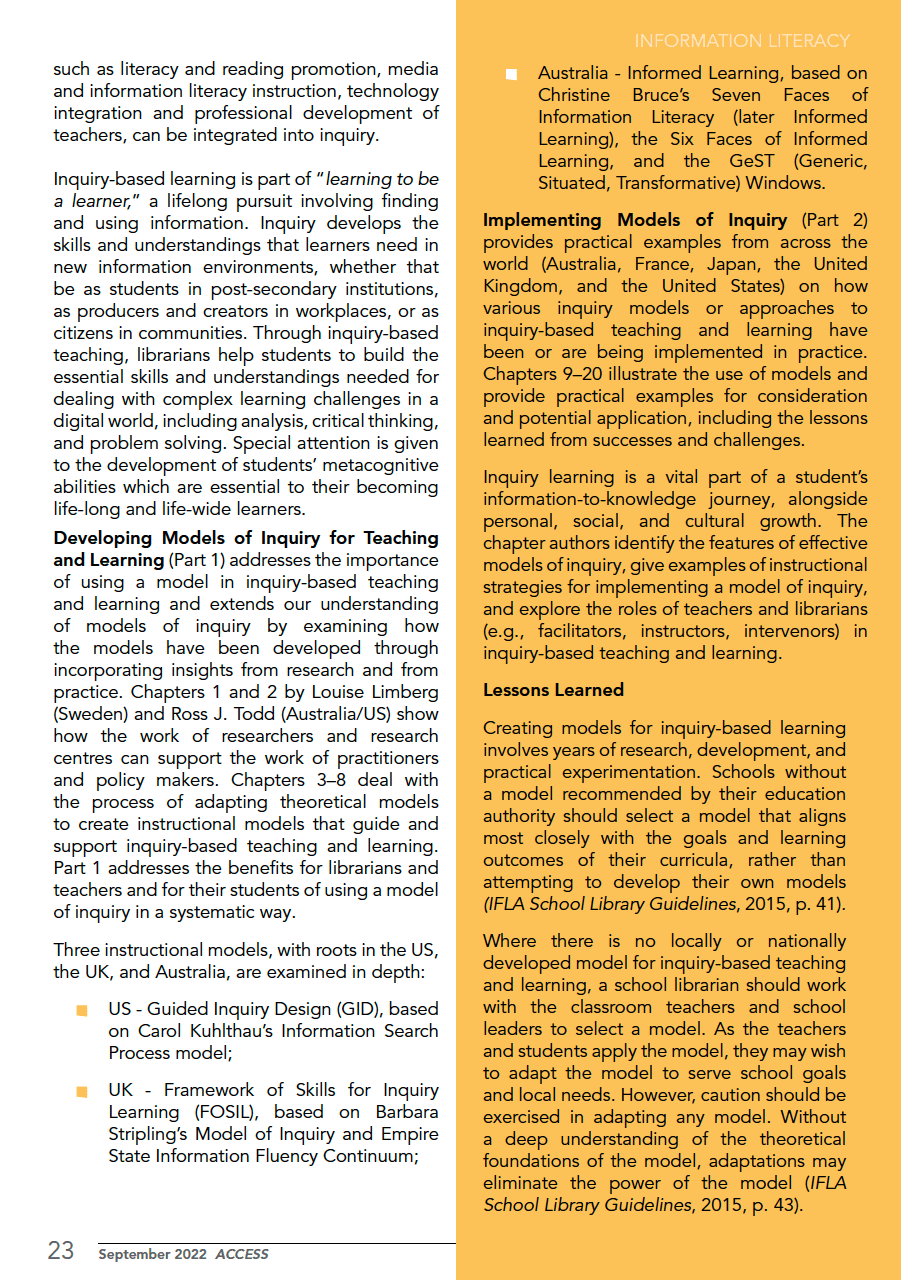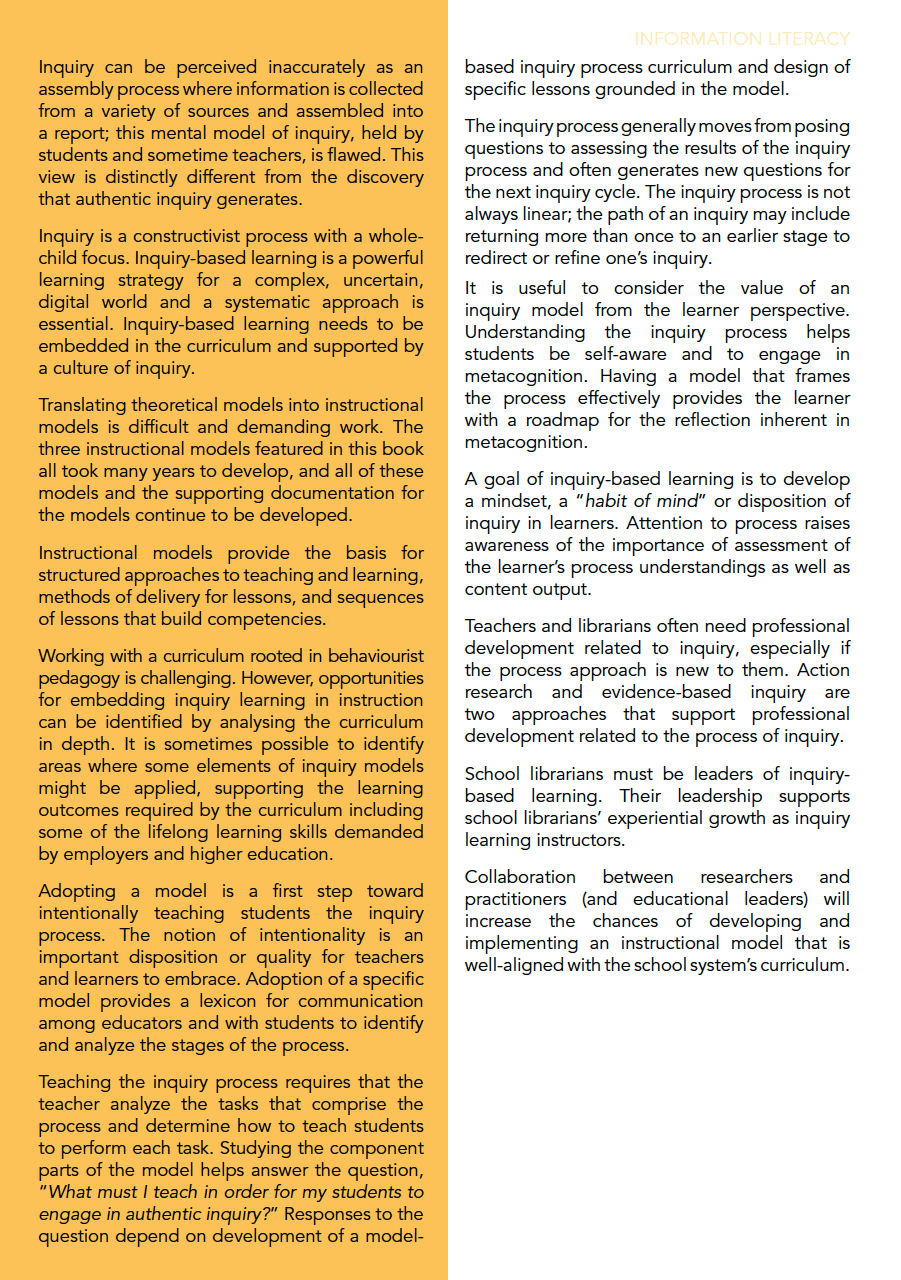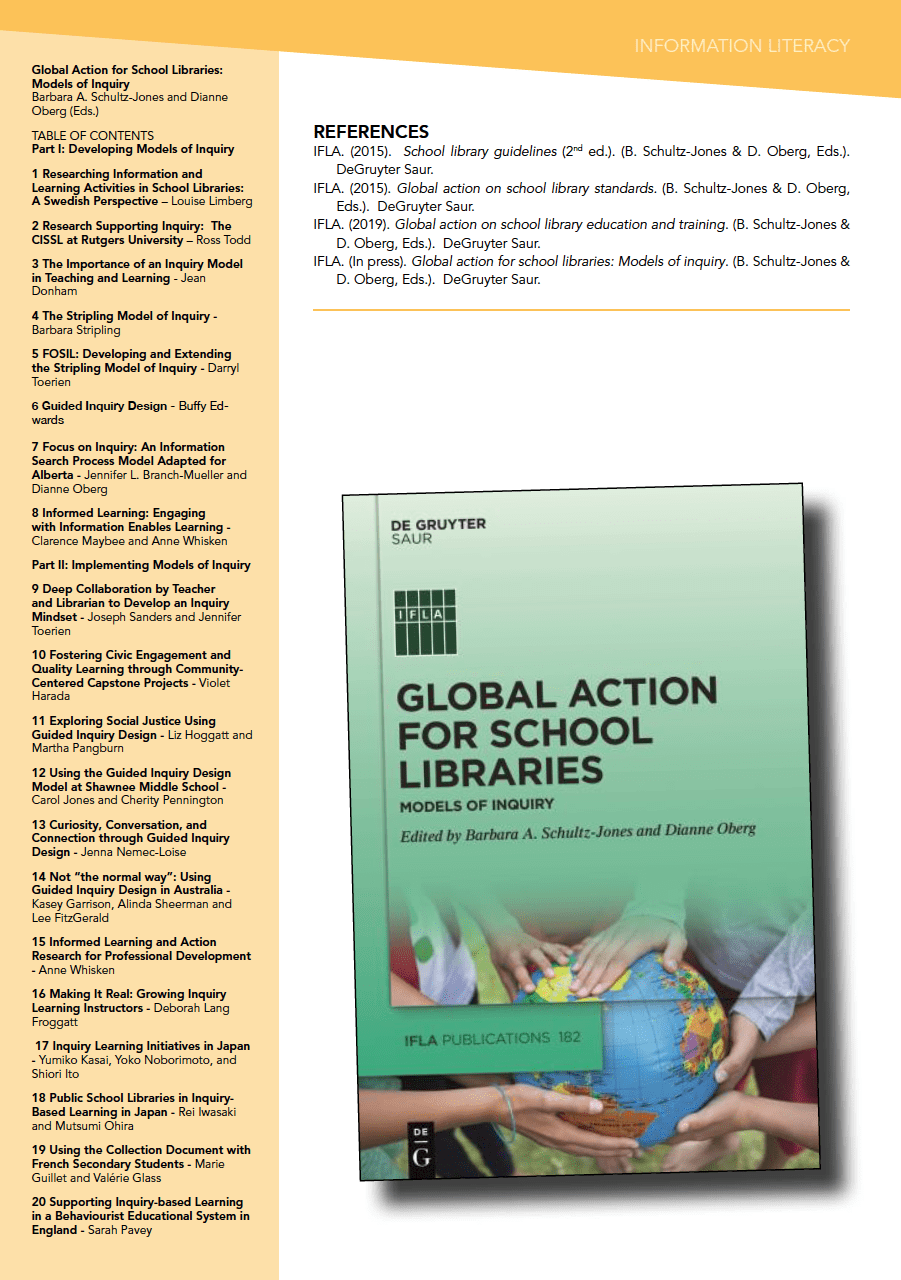The much-anticipated IFLA publication, Global Action for School Libraries: Models of Inquiry (2022), was launched at a workshop on 23 July 2022 as part of the IFLA World Library and Information Congress in Dublin.
Jenny and I were delighted to be able to present our chapters alongside colleagues from around the world.
FOSIL was one of only 5 models of the inquiry process to be included, and my presentation – FOSIL: Developing and Extending the Stripling Model of Inquiry – covered both FOSIL and Stripling’s Model of Inquiry/ the Empire State Information Fluency Continuum on Barbara’s behalf.
Jenny’s presentation – FOSIL: Deep Collaboration by Teacher and Librarian to Develop an Inquiry Mindset – summarised her four-year collaboration on a curricular inquiry with Joe Sanders, a teachers of Politics at Oakham School.
Our combined presentations may be downloaded from here.
Global Action for School Libraries: Models of Inquiry will be published on 3 October by De Grutyer (see here), and an overview of the book is provided below:
This book focuses on inquiry-based teaching, one of the five vital aspects of the instructional work of school librarians identified in the second edition of the IFLA School Library Guidelines (2015). Effective implementation of inquiry-based teaching and learning requires a consistent instructional approach, based on a model of inquiry that is built upon foundations of research and best practice.
The book explains the importance and significance of inquiry as a process of learning; outlines the research underpinning this process of learning; describes ways in which models of inquiry have been developed; provides recommendations for implementing the use of such models; and demonstrates how the other core instructional activities of school librarians, such as literacy and reading promotion, media and information literacy instruction, technology integration and professional development of teachers, can be integrated into inquiry.
Inquiry-based learning is part of “learning to be a learner,” a lifelong pursuit involving finding and using information. Inquiry develops the skills and understandings that learners need in new information environments, whether that be as students in post-secondary institutions, as producers and creators in workplaces, or as citizens in communities.
Through inquiry-based teaching, school librarians help students to build the essential skills and understandings needed for dealing with complex learning challenges, including analysis, critical thinking, and problem solving. In this book, special attention is given to the development of students’ metacognitive abilities, which are essential to their becoming life-long and life-wide learners.






